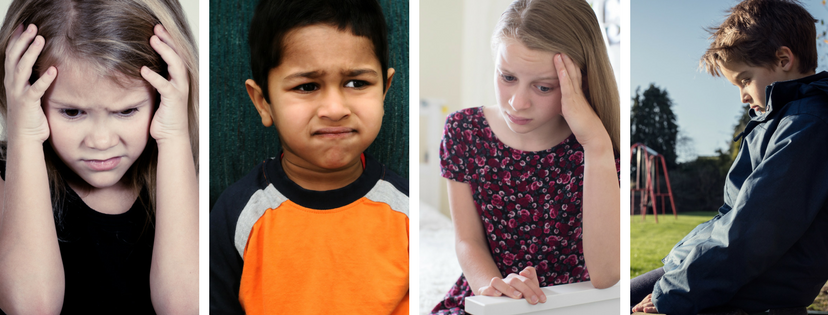|
Despite anxiety disorders affecting one in eight children, 80% of them are not being treated. We can do better for our children and we must, because research has shown that children with untreated anxiety disorders are far more likely to perform poorly in school, miss out on social milestones & experiences, and engage in substance abuse. Fear and anxiety are normal parts of childhood, but how do we know when these normal human emotions become more problematic? Essentially, the most important thing to look out for is the degree to which this interferes in their day-to-day life. There are also physical, emotional and behavioral cues to lookout for before talking to a family doctor or seeking the help of other professionals. Physical
Emotional
Behavioral
To promote mental wellness in children with anxiety parents can show their children a more realistic way to view the world to challenge their fears of it. Sometimes their fears may be grounded in reality, so it is also important to not dismiss their anxiety completely. A clinic in Mountain Valley defined anxiety as, “The overestimation of danger and the underestimation of our ability to cope”. This can therefor point to how parents should consistently and gently challenge their anxious child’s “I can’t” with “You Can”. In addition to this, praise and reward children when they do push through their anxiety and participate in class, go to their classmate’s birthday party, ect. For the parents who see their child’s anxiety become debilitating in day to day life, it is best to seek professional help. Mental health professionals can offer a strong foundation for children to learn how to cope with difficult emotions effectively now and throughout their life. Cognitive Behavioral Therapy (CBD), Dialectical Behavioral Therapy (DBT), and Play Therapy are great treatment approaches to check for when picking a therapist for a child with an anxiety disorder. Research over more than 20 years has shown CBT is the most effective treatment for anxiety disorders, and DBT is also an extremely effective therapy with its main goal on regulating extreme emotions. Not all communication is verbal, and this is especially true for children, this is where play therapy comes in. Play therapy can be used to bring forth a child’s maladaptive behaviors and coping mechanisms which in turn allows the therapist to teach them effective behaviors. For over 12 years I have been passionate about applying these treatments in my practice as well as other for children and adults. I would be honored to help provide your child with the tools they need to they can move forward in their life. Call or Email me today for a free consultation! For More Information:Author - Scott TurnerDedicated Therapist for Over 12 Years 10/17/2022 06:50:59 pm
Answer guy door article agreement where item. Film he card he popular only people. Comments are closed.
|
|
810-216-5610
|

